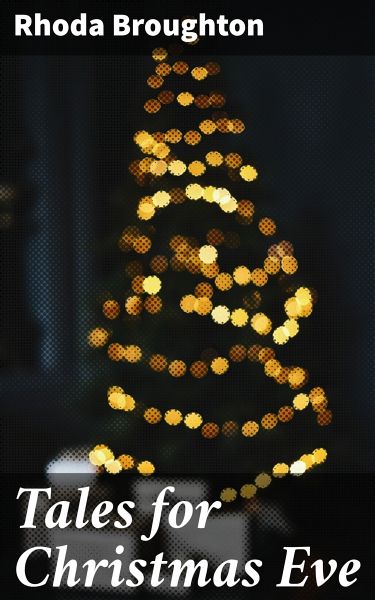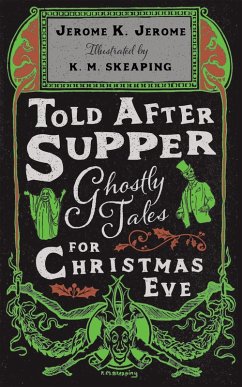
Tales for Christmas Eve (eBook, ePUB)
Enriched edition. Enchanting Victorian Christmas tales exploring human nature and societal norms
Kommentar: Ball, Victor / Redaktion: Good Press

PAYBACK Punkte
0 °P sammeln!
In "Tales for Christmas Eve," Rhoda Broughton compiles a captivating collection of stories that explore themes of mystery, nostalgia, and the supernatural, all set against the enchanting backdrop of the Christmas season. Broughton's literary style, characterized by her vivid prose and keen psychological insight, draws readers into a world where the familiar tradition of Christmas intertwines with elements of the uncanny. Each tale unfolds with a sense of intricate plotting and rich character development, inviting a reflective engagement with the festive spirit through a lens of intrigue and mo...
In "Tales for Christmas Eve," Rhoda Broughton compiles a captivating collection of stories that explore themes of mystery, nostalgia, and the supernatural, all set against the enchanting backdrop of the Christmas season. Broughton's literary style, characterized by her vivid prose and keen psychological insight, draws readers into a world where the familiar tradition of Christmas intertwines with elements of the uncanny. Each tale unfolds with a sense of intricate plotting and rich character development, inviting a reflective engagement with the festive spirit through a lens of intrigue and moral complexity, reminiscent of Victorian literary traditions. Rhoda Broughton, an accomplished English novelist born in the 19th century, developed her literary voice amidst the cultural upheavals of her time. Her experiences as a woman writer in an era where female authors were often marginalized have imbued her works with a distinctive perspective. Broughton's penchant for the gothic and the macabre, combined with her fascination for societal norms, clearly informed her intention in crafting these Christmas tales that both celebrate and critique the season. This collection is highly recommended for readers seeking to enrich their holiday traditions with thoughtful literature. "Tales for Christmas Eve" not only entertains but also provokes contemplation on the deeper meanings of Christmas, making it an excellent companion for cozy winter nights or festive gatherings. In this enriched edition, we have carefully created added value for your reading experience: - A succinct Introduction situates the work's timeless appeal and themes. - The Synopsis outlines the central plot, highlighting key developments without spoiling critical twists. - A detailed Historical Context immerses you in the era's events and influences that shaped the writing. - A thorough Analysis dissects symbols, motifs, and character arcs to unearth underlying meanings. - Reflection questions prompt you to engage personally with the work's messages, connecting them to modern life. - Hand-picked Memorable Quotes shine a spotlight on moments of literary brilliance. - Interactive footnotes clarify unusual references, historical allusions, and archaic phrases for an effortless, more informed read.
Dieser Download kann aus rechtlichen Gründen nur mit Rechnungsadresse in A, B, BG, CY, CZ, D, DK, EW, E, FIN, F, GR, H, IRL, I, LT, L, LR, M, NL, PL, P, R, S, SLO, SK ausgeliefert werden.













